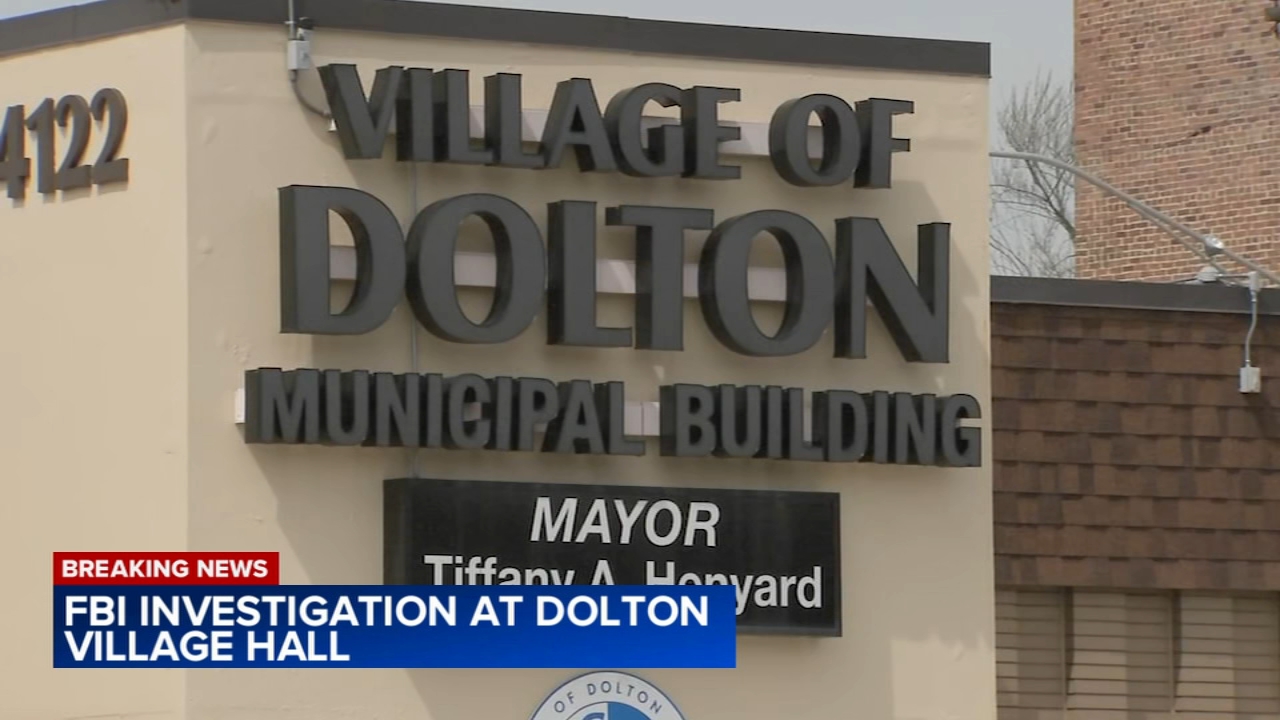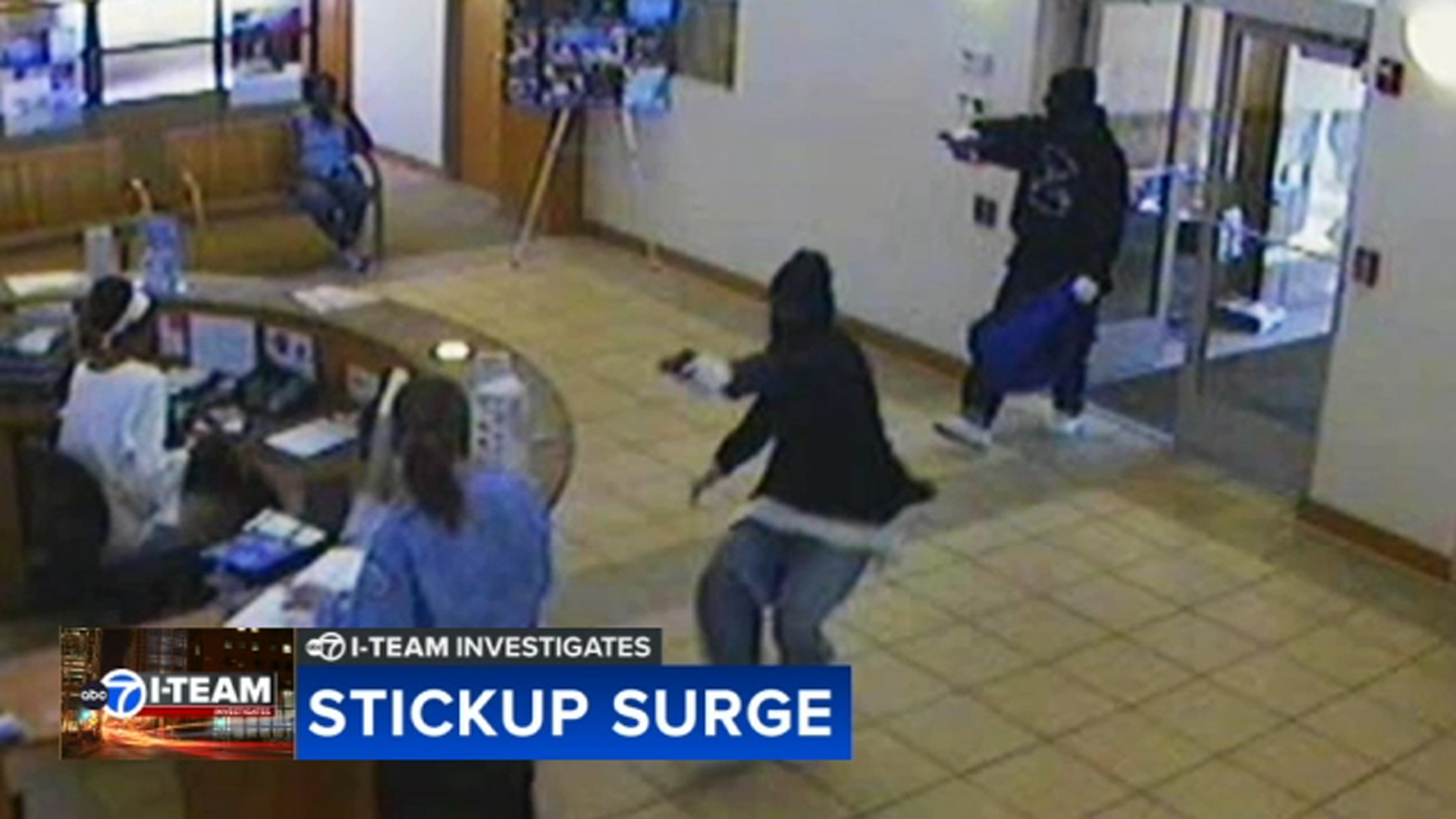Government action on for-profit college accreditor leaves students in limbo
An ABC7 I-Team Investigation
CHICAGO (WLS) -- Government action to protect future students of for-profit college is leaving current students and graduates in limbo.
A company responsible for accrediting hundreds of colleges has lost its standing with the U.S. Department of Education, a move aimed at protecting students of for-profit schools.
The Department of Education withdrew its recognition of the Accrediting Council for Independent Colleges and Schools. The ACICS validates for-profit colleges and is facing criticism for poor oversight.
In October 2015, the I-Team exposed allegations that for-profit colleges defrauded students with misleading job placement and graduation rates. ACICS accredits 20 schools in Illinois, including the now-defunct ITT Technical Institute and Westwood colleges.
Now those schools and the embattled Computer Systems Institute have a year and a half to find a new accreditor, leaving current students and graduates worried about the credibility of their degrees.
"It's kind of rough because you don't know what you are going to do next," said CSI student Roderick Barnes.
In May the I-Team reported that some programs at CSI would no longer accept new students after a federal investigation accused the school of creating "sham employers." CSI disputed the accusations and said it would continue to support students and staff.
The ACICS said it plans to appeal the government's decision. The group released a statement that said, in part, "We are confident that if given the opportunity to do so, we will be able to demonstrate major reforms and ongoing progress towards compliance."
U.S. Senator Dick Durbin (D-IL) said the agency was not "worthy of its responsibility as a gatekeeper of taxpayer dollars."
Friday Durbin and U.S. Senator Elizabeth Warren (D-MA) introduced legislation to reform college accreditation. They said it will protect students by strengthening the government's power to hold accreditors accountable.
DEPARTMENT OF EDUCATION PRESS RELEASE
Today, September 22, 2016, the Accrediting Council for Independent Colleges and Schools ("ACICS") received notice that the Senior Department Official at the Department of Education has accepted the recommendation of the Department staff and the National Advisory Committee on Institutional Quality and Integrity ("NACIQI") to deny renewal of recognition to the Council. ACICS plans to appeal the SDO's decision to Secretary King. While the appeal is pending, ACICS retains its federal recognition and remains determined to fully execute its accreditation responsibilities in a professional manner.
Roger Williams, ACICS Interim President, stated: "While we are disappointed in this decision, ACICS plans to continue diligent efforts to renew and strengthen its policies and practices necessary to demonstrate this agency's determination to come into full compliance with the Department of Education's recognition criteria and, most importantly, to improve outcomes for the estimated 600,000 students currently attending ACICS-accredited institutions. We are confident that if given the opportunity to do so, we will be able to demonstrate major reforms and ongoing progress towards compliance with the Department's recognition criteria."
PRESS RELEASE ON INTRODUCTION OF NEW LEGISLATION
U.S. Senators Dick Durbin (D-IL), Elizabeth Warren (D-MA), and Brian Schatz (D-HI) introduced the Accreditation Reform and Enhanced Accountability Act of 2016 (AREAA), which seeks to reduce student debt and protect students and taxpayers by reforming higher education accreditation and strengthening the Department of Education's (ED) ability to hold accreditors accountable.
College accreditation is the cornerstone of the nation's higher education quality assurance system, with accreditors acting as a gatekeeper to tens of billions of dollars a year in federal student aid. But a lack of accountability and oversight have allowed poor performing and even fraudulent colleges to continue to operate and to receive federal student loan dollars at the expense of students and taxpayers. Both Corinthian Colleges and ITT Tech remained accredited when they recently filed for bankruptcy. AREAA would rebuild our college quality assurance system with stronger accountability to ensure that the federal government's growing investment in higher education actually helps students access a quality, affordable education.
"We should be able to count on federally recognized accreditation to guarantee a basic level of quality when it comes to the education offered by schools. Unfortunately accreditation as a whole has failed that mission in recent years. Time and again, accreditors have stood by - ignoring clear warning signs - while for-profit schools have lured students into taking on huge debt for an education that is essentially worthless when it comes to them being able to find a job," said Senator Durbin. "We can't continue to trust taxpayer dollars and students' futures to a system that allowed Corinthian and ITT Tech to remain accredited to the day they went bankrupt. It is time for real accountability for accreditors."
AREAA would refocus the priority of accreditation on how colleges are serving their students, requiring accreditors to consider student outcomes as well as cleaning-up conflicts of interest between accreditors and colleges. The legislation would require accreditors to quickly respond to government investigations or lawsuits accusing schools of fraud or instability to protect students, would add more transparency around accreditation decisions, and would improve the Education Department's ability to hold poor-performing accreditors accountability.
Senator Durbin has been an outspoken advocate for reform of the college accreditation system. In 2011, Durbin called on sixty college and university accreditors to explain how they were ensuring high academic standards and the maximum return on American taxpayers' investment. Earlier this year, he urged the Department of Education to revoke federal recognition of Accrediting Council of Independent Colleges and Universities (ACICS), which accredited the now-defunct Corinthian, ITT Tech, and Westwood College. Yesterday, ED announced it would terminate ACICS for its failure to set high quality standards and protect federal student aid dollars.
PRESS RELEASE FROM SEN. DICK DURBIN ON ACICS DECISION
U.S. Senator Dick Durbin (D-IL) released the following statement after the U.S. Department of Education announced its decision to terminate recognition of the Accrediting Council of Independent Colleges and Universities (ACICS). Durbin had called for the Department to terminate ACICS, which accredited now-defunct Corinthian, ITT Tech, and Westwood Colleges.
"ACICS repeatedly showed that it was not a reliable authority on educational quality or worthy of its responsibility as a gatekeeper of taxpayer dollars. I commend the Department of Education for today's decision to terminate ACICS' federal recognition. Let this be a warning to other accreditation agencies that have been complicit in the defrauding of students and the fleecing of taxpayers by major for-profit education companies."
Today, Durbin joined Senators Elizabeth Warren and Brian Schatz in introducing the Accreditation Reform and Enhanced Accountability Act (AREAA), which would take steps to reduce student debt and protect students and taxpayers by reforming higher education accreditation and strengthening the Education Department's (ED) ability to hold accreditors accountable. AREAA would rebuild the college quality assurance system with stronger accountability to ensure that the federal government's growing investment in higher education actually helps students access a quality, affordable education.
AREAA would refocus the priority of accreditation on how colleges are serving their students, requiring accreditors to consider student outcomes as well as cleaning-up conflicts of interest between accreditors and colleges. The legislation would require accreditors to quickly respond to government investigations or lawsuits accusing schools of fraud or instability to protect students, would add more transparency around accreditation decisions, and would improve the Education Department's ability to hold poor-performing accreditors accountability.





